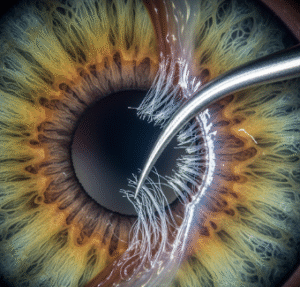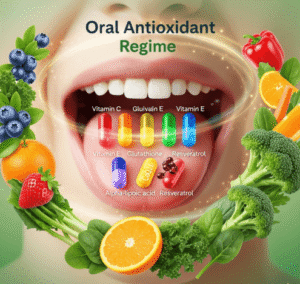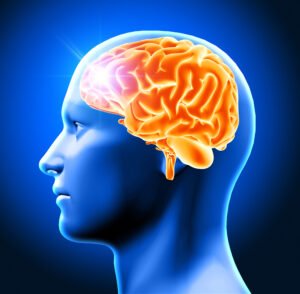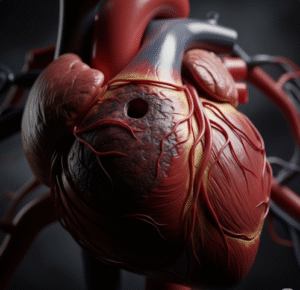Overview
Adrenal fatigue is a condition characterized by chronic tiredness and reduced stress resilience, believed to result from prolonged stress affecting adrenal gland function. The adrenal glands, located above the kidneys, produce hormones like cortisol, adrenaline, and aldosterone that regulate metabolism, immune response, and stress adaptation. Although adrenal fatigue is not universally recognized as a formal medical diagnosis, many patients experience symptoms consistent with adrenal dysfunction. In Korea, integrative clinics and hospitals provide a combination of conventional evaluation, lifestyle interventions, nutritional support, and stress management programs to help restore energy levels and overall well-being.
Key Facts
▶ Prevalence: Common in adults experiencing chronic stress, though exact numbers are difficult to determine.
▶ Primary Symptoms: Fatigue, sleep disturbances, brain fog, mood swings, and difficulty managing stress.
▶ Causes: Prolonged physical, emotional, or mental stress, poor sleep, unbalanced diet, or chronic illness.
▶ Impact: Can interfere with work, school, daily activities, and overall quality of life.
▶ Treatment Options in Korea: Lifestyle optimization, nutrition therapy, supplementation, stress management, and supportive medical care.
What is Adrenal Fatigue?
Adrenal fatigue refers to a state of diminished adrenal gland function caused by prolonged stress exposure, leading to reduced hormone production, particularly cortisol. Symptoms often develop gradually and may be subtle initially, progressing to significant fatigue and impaired stress tolerance.
▶ Mild Adrenal Fatigue: Occasional tiredness, difficulty waking in the morning, mild stress sensitivity.
▶ Moderate Adrenal Fatigue: Persistent fatigue, poor concentration, cravings for salty or sweet foods, and increased susceptibility to illness.
▶ Severe Adrenal Fatigue: Chronic exhaustion, brain fog, sleep disturbances, and a noticeable decline in physical and mental performance.
Note: Early recognition and intervention can prevent progression and improve overall health.
What Symptoms Are Related to Adrenal Fatigue?
▶ Persistent Fatigue: Feeling exhausted despite adequate sleep.
▶ Difficulty Waking in the Morning: “Snooze syndrome” or morning lethargy.
▶ Brain Fog: Difficulty concentrating, memory lapses, and mental sluggishness.
▶ Mood Changes: Anxiety, irritability, or mild depression.
▶ Sleep Disturbances: Trouble falling asleep or waking frequently at night.
▶ Cravings: Salt, sugar, or caffeine to temporarily boost energy.
▶ Reduced Stress Resilience: Feeling overwhelmed by minor stressors.
▶ Weakened Immunity: Frequent colds or infections due to stress-related immune suppression.
What Causes / Possible Causes
Adrenal fatigue is typically associated with chronic stress and lifestyle factors:
▶ Prolonged Emotional Stress: Work pressure, family issues, or personal challenges.
▶ Physical Stress: Chronic illness, infections, or overtraining in athletes.
▶ Sleep Deprivation: Inadequate or irregular sleep affecting adrenal hormone cycles.
▶ Poor Nutrition: Diets high in processed foods and low in essential nutrients.
▶ Chronic Inflammation: Low-grade inflammation from illness or poor diet affecting adrenal function.
▶ Caffeine and Stimulant Overuse: Temporary energy boosts that strain adrenal function.
▶ Underlying Medical Conditions: Thyroid dysfunction, autoimmune disorders, or hormonal imbalances.
When Should I See a Doctor?
▶ Persistent Fatigue: Lasting several weeks despite rest.
▶ Sleep Problems: Difficulty falling asleep, waking at night, or non-restorative sleep.
▶ Mood Disturbances: Anxiety, irritability, or depressive symptoms interfering with life.
▶ Cravings and Appetite Changes: Salt or sugar cravings affecting nutrition.
▶ Physical Symptoms: Dizziness, low blood pressure, or frequent infections.
▶ Lifestyle Interference: Fatigue preventing normal work, exercise, or daily activities.
Tip: Consulting a healthcare professional ensures proper evaluation, rules out serious conditions, and guides effective interventions.
Care and Treatment
Management of adrenal fatigue focuses on lifestyle modification, stress reduction, and nutritional support:
▶ Stress Management: Mindfulness, meditation, yoga, and deep-breathing exercises.
▶ Balanced Diet: Nutrient-rich meals, adequate protein, healthy fats, and complex carbohydrates.
▶ Sleep Hygiene: Regular sleep schedule, darkened room, and avoiding electronics before bedtime.
▶ Exercise Moderation: Light to moderate exercise to support energy without overtaxing the body.
▶ Supplements: Vitamins B, C, magnesium, and adaptogenic herbs under professional guidance.
▶ Hydration: Maintaining adequate water intake to support metabolic function.
Treatment Options in Korea
Medical Evaluation:
▶ Hormone Testing: Blood, saliva, or urine tests to assess cortisol, DHEA, and other adrenal hormones.
▶ Differential Diagnosis: Rule out thyroid disorders, anemia, chronic infections, or autoimmune conditions.
Integrative Therapies:
▶ Nutrition Counseling: Personalized dietary plans to restore energy and hormonal balance.
▶ Lifestyle Programs: Stress management workshops, sleep improvement strategies, and wellness coaching.
▶ Complementary Therapies: Acupuncture, meditation, and gentle physical therapies to support adrenal health.
Monitoring & Support:
▶ Follow-up Evaluations: Regular assessment to track hormone levels, energy levels, and progress.
▶ Psychological Support: Counseling or cognitive therapy for stress-related anxiety and mood disturbances.
▶ Specialist Clinics: Korean integrative medicine centers provide comprehensive care combining conventional and holistic approaches.
Outcome: With early recognition and structured intervention in Korea, individuals with adrenal fatigue can restore energy levels, improve stress resilience, and maintain a healthy, balanced lifestyle.













